
8 minute read
From Italy to Willoughby
By Mike Neundorfer
How did I, Mike Neundorfer, founder of Advanced RV (ARV), and my wife, Marcia, end up in Rome, Italy, staying in one of the best hotels in the world, and interviewing a Master Upholsterer in a cafe next to the Spanish Steps?
It was 2018 when Alex LLacsahuanga was thinking about his and his family’s future. He had been working for the Hassler Hotel in Rome for 10 years. His responsibilities were broad, including interior design, sewing, upholstery and supervision of renovations, but he was ready for other opportunities.
After discussing with his wife, Mariela, he answered an internet job posting from ARV in Cleveland, Ohio, for a Master Upholster position. Two days later, he received an email from me asking him to schedule an interview. Alex was agreeable, but he wanted to make sure that I understood that since he was living and working in Italy, and he was not presently allowed to work legally in the US. I immediately started preliminary investigations about what the immigration process entailed.
Marcia and I were scheduled to attend the RV expo in Dusseldorf, Germany, followed by a visit to Ireland to see friends, so a trip to Rome seemed feasible. We could combine this with a visit to my sister, Martha, who had been living with her husband, Claudio, in Rome for over 30 years.
We set up the visit for August, 2018. Alex arranged a special rate for us at the Hassler Hotel for three nights in a room recently redecorated by Alex and his team. The room’s comfort, design and details were world class.
The day we arrived, we met Alex, Mariela, Martha, and Claudio for lunch at a cafe near the hotel. Mariela spoke Spanish, Italian, French, and English, but Alex spoke only Spanish and Italian, so Mariela and Martha helped with translation.
Early in the conversation, I asked Alex why he wanted to move to the US. He answered, without hesitation, “For my children.” Mariela and Alex have three children, then ages 17, 15 and 6, and they were concerned about the limited opportunities for them in Rome.
Over the next few days, we shared several meals with Alex, Mariela, and their children, twice at Alex and Mariela’s apartment. Mariela and Alex are originally from Peru, where Alex worked in several Peruvian restaurants, and he is an excellent chef.
After only a couple of days together, we shook hands on a future for Alex’s family in America. The long, expensive immigration process took over two years, lots of risk, and significant financial investment. Alex and Mariela committed to selling all of their possessions, including their car, giving up their apartment, and getting on a plane to the US with their children. I committed Advanced-RV to working without a master upholsterer for over two years, hiring immigration lawyers, and spending tens of thousands of dollars on the process. flight check-in that they were on a “no travel list” due to COVID. They had to rent a temporary apartment for a month while Marcia and I worked with our immigration and travel resources to get them a flight to Mexico, where they would have to quarantine. After two weeks in Mexico, they flew through Dallas to Cleveland without incident. Marcia and I had arranged a house for them, and they were relieved to finally be at their destination with a place to stay.
Alex and Mariela have now been part of the Advanced RV family for over two years, Alex as a Master Upholsterer, and Mariela in accounting. Both are valued team members.
It has been over 4 years since we first met Alex and Mariela in Rome. Taking all the risks associated with immigration, for them, as well as us, has been well worth it.
This would be enough on its own, but none of us counted on the COVID-19 pandemic, which complicated the process. When Alex and his family arrived at the Rome airport with the proper travel papers in hand and only their checked baggage, they were told at the Lufthansa
Knowing Alex, Mariela, and their family has been a great joy. We look forward to our shared meals (usually cooked by Alex), our weekly trips to the West Side Market together, and time with Francesco, who has become the language and cultural hub of the family as a 10 year old kid.
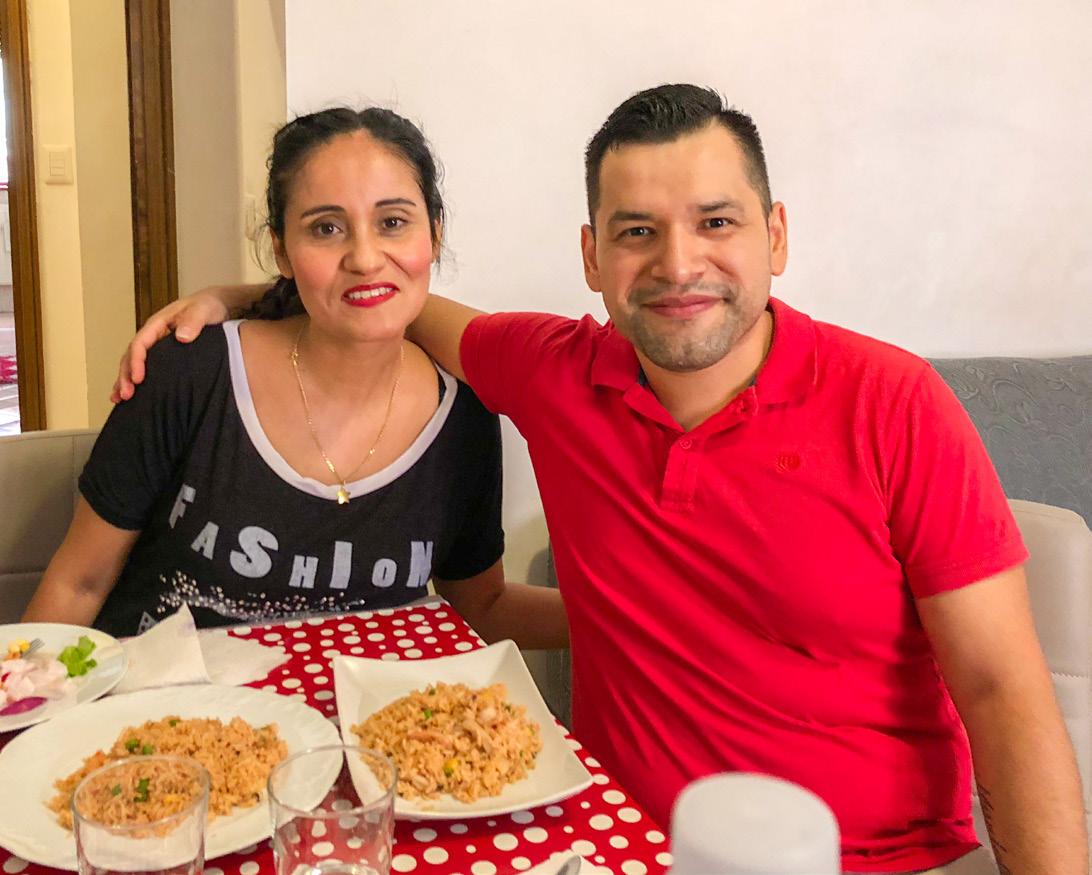
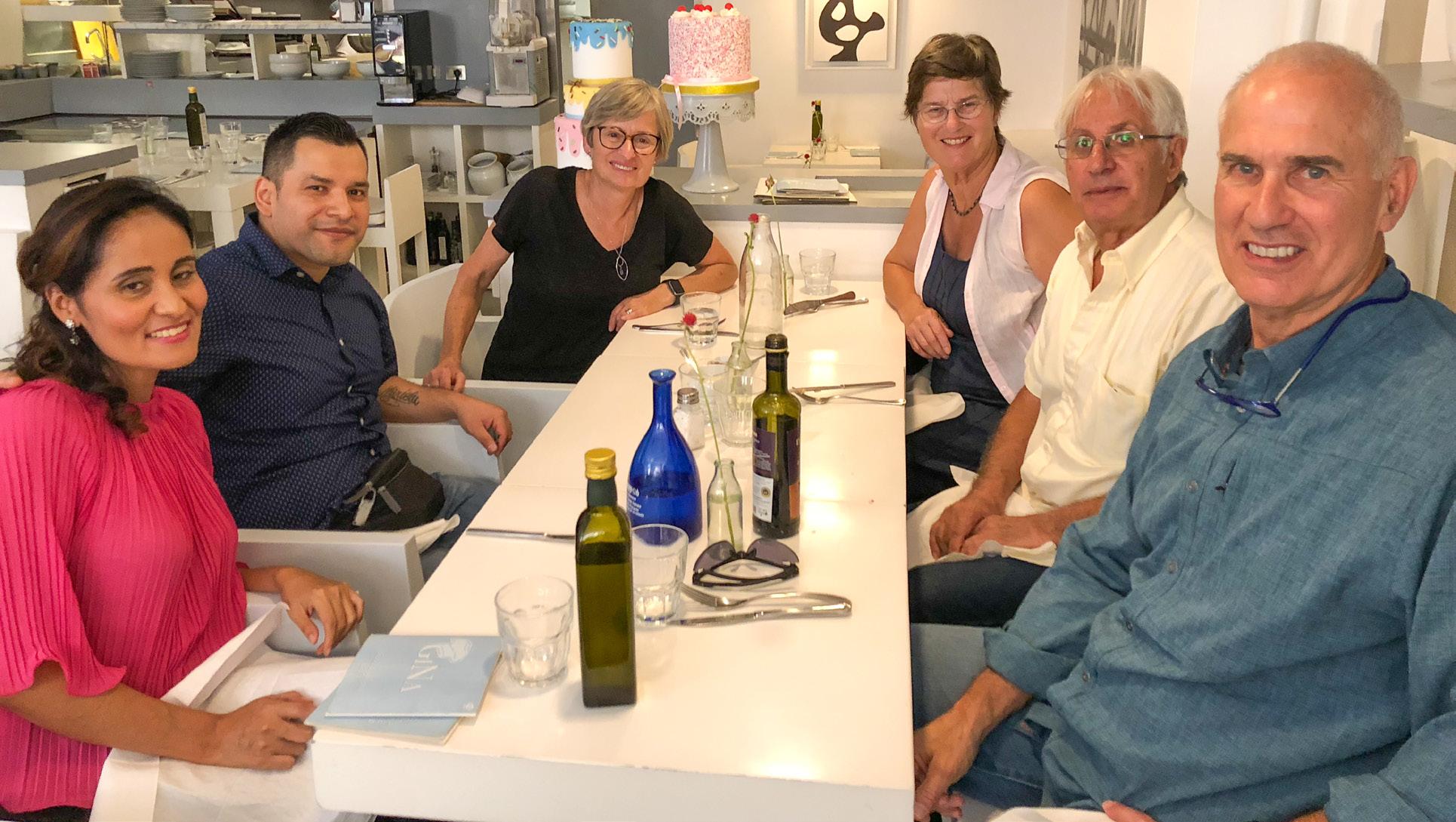
In 2018, Alex and Mariela made the decision to leave their comfortable life in Rome, Italy, trusting their gut feelings and taking a chance on carving out a future for their family in the United States, based on a job offer for Alex from ARV owner, Mike Neundorfer. Trust must be a two-way street if a joint venture is to move forward successfully. Mike had to trust that Alex had the upholstery skills that his company needed and that he would persist in the two year legal immigration process, and Alex had to trust that Mike’s job offer was the real deal and that uprooting his family to move to a foreign country was the right path for them. Both Alex and Mariela were convinced that immigration, although difficult, would provide opportunities for their three children, Demi, Brisa and Francesco.
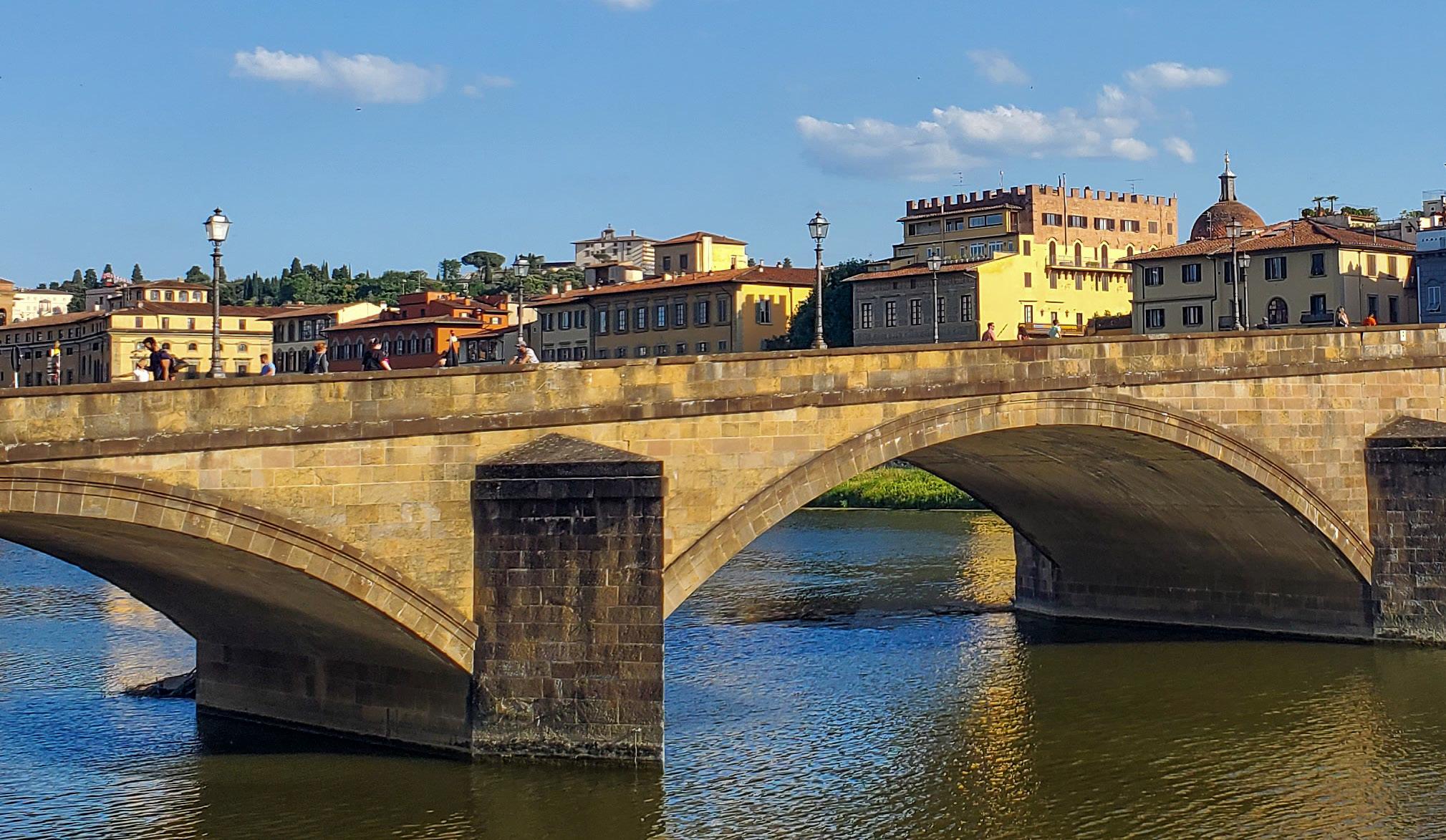
I spent some time with Alex and Mariela recently and found that their smiles lit up the room while discussing their new “hometown” of Willoughby, Ohio. Here, they have found a hub of friends, neighbors and co-workers that have welcomed them and their three children into the community.
How do you explain to your children that their life is about to be turned upside-down? The trust that Alex and Mariela had placed in Mike and his wife, Marcia, would have to see them through the difficult transition.
Daughters, Demi (now age 21) and Brisa (now age 18) along with son, Francesco (now age 10) needed to trust that their parents knew what was best and would help them navigate the unknown. Meanwhile, the parents worried how their children would adjust to their new environment after saying good-bye to friends and family in Italy. Language would definitely be the first stumbling block, as Mariela was the only one of the five who spoke English. The girls had studied English throughout school, but were hesitant to speak it.
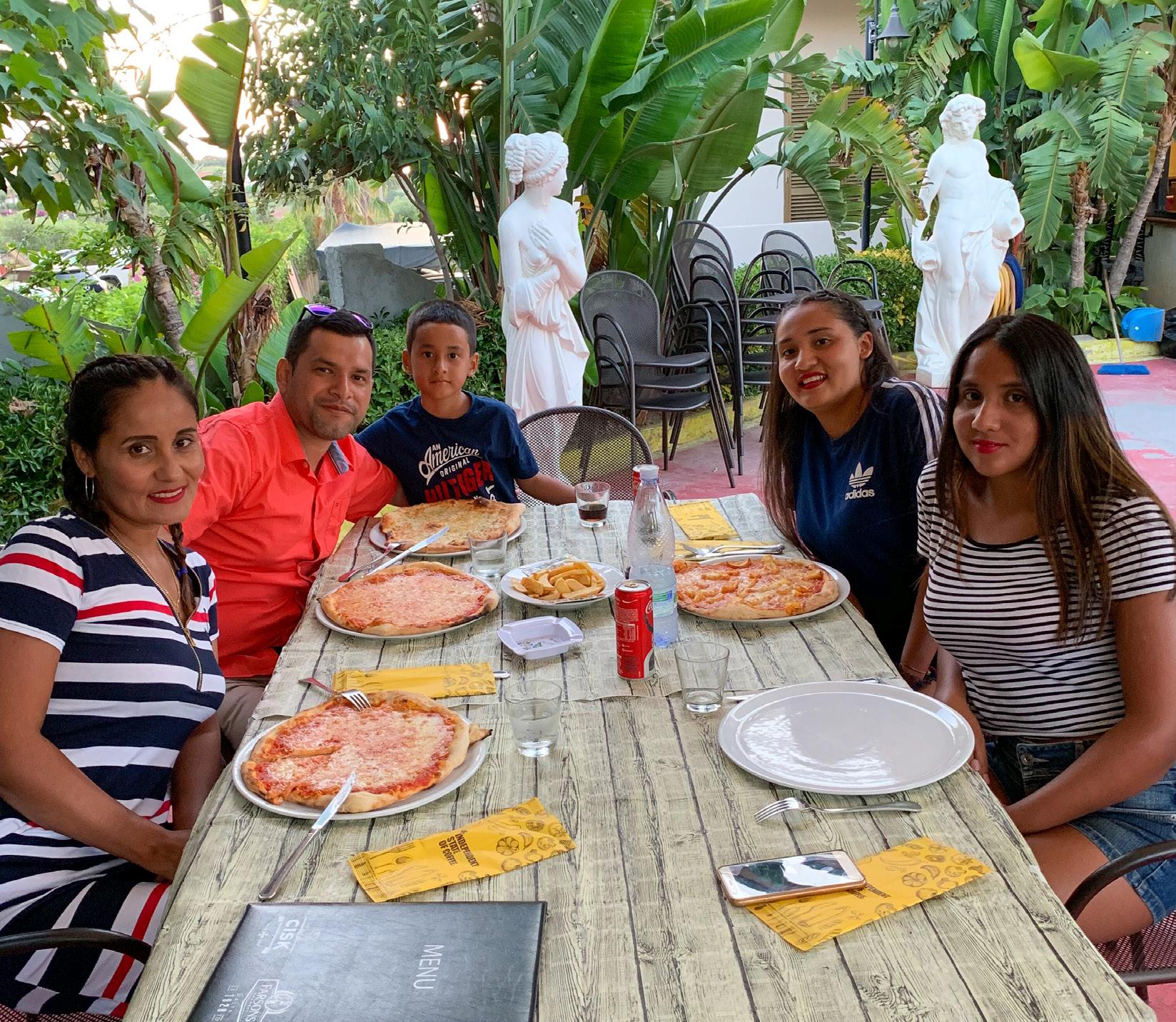
Starting school here for Francesco, at first, meant shedding many tears of frustration because he didn’t understand anything that was being said and he felt completely lost. According to his mother, he is a kid who loves raising his hand and speaking up in class, and it was hard for him when he was unable to do so. But within a few weeks, his comprehension improved and he began to grasp the basic concepts of the English language. Before long, he was doing well, making friends in class and feeling comfortable with his elementary school lessons.
Marcia spent a lot of time with Francesco and the girls when they arrived. She played Parcheesi with them (“You are ruthless! Do you know the word “ruthless?”), and with Francesco, she started reading picture books. They quickly advanced to classics such as Stuart Little and Charlotte’s Web. With the girls, she read Harry Potter.
Marcia and Francesco played baseball in the backyard. Francesco has a passion for the sport and hopes to join a boys’ team in the spring.
Upheaval for teenagers is not so easily resolved. Demi and Brisa found that fitting in and making new friends, while dealing with the language barrier, was a bigger struggle than what their little brother faced.
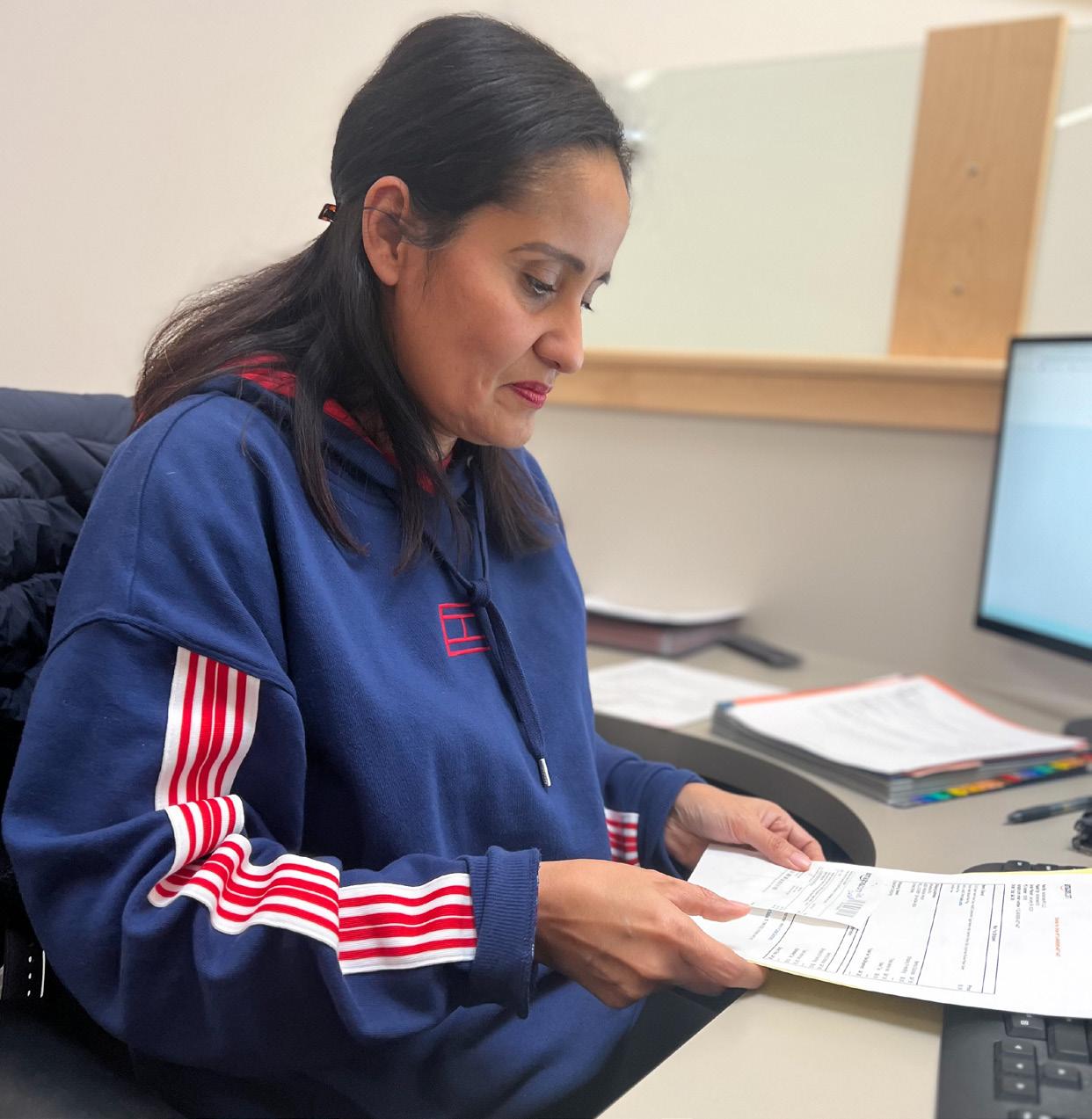
Both teens were born in Peru, where their family hails from originally. They had already experienced cultural disruption when the family moved to Italy 14 years ago. To add to their estrangement, the COVID-19 pandemic meant that much of their US schooling took place online rather than in-person. This increased their feelings of isolation and disengagement. How do you become friends with someone you only know from a classroom Zoom screen? But, as the pandemic restrictions gradually eased and schools returned to their pre-pandemic routines, both girls had developed sufficient language skills to excel in their lessons and feel more adapted to the situation. Currently, Brisa will soon graduate from high school and Demi is already attending classes at a nearby community college. The sisters have continued their international adventure by obtaining employment at a local Mexican restaurant.
As the three of us continued to talk about contrasts they found between their former life in Rome and their new life in Willoughby, our focus turned to food. It was quickly apparent that they missed the easy access to fresh food that they savored while living in both Peru and Italy. Alex, being the chef of the family, favors the many varieties of Italian pasta. They occasionally indulge in a trip to the large food emporium known as West Side Market in Cleveland to satisfy some of their cravings.
When I mention pizza, both Alex and Mariela burst into laughter. “It is so different here!,” they both exclaim in unison. Of course, the youthful standard of burger and fries has quickly earned their seal of approval. However, Francesco gives two thumbs down to the unappealing choices offered by the infamous school “lunch ladies”. He prefers, instead, to bring his own lunch from home to guarantee a tastier noon meal.
Home itself looks different here, too. Instead of the customary apartment in the bustling metropolitan city of Rome, the family lives in a suburban ranch house that is just a short walk from Francesco’s elementary school. There is a grassy yard to enjoy (and take care of) and a finished basement that provides additional living space. Neighbors have turned into friends and life in Willoughby has become routine as the family settles into their new normal. A few trips to visit friends in Virginia and Florida have given the family a glimpse of the diverse regions found in our United States.
When asked to give their overall verdict of their move to this country, along with their new employment with ARV, Mariela responded in a voice laden with emotion, gesturing to indicate that she spoke for both of them. “We are so grateful for what Mike and Marcia have done for our family. We are not just employees here. They have treated us as family members and helped us imagine a better future for our children.”
It is abundantly clear from her statement that the two-way street of trust that connected them with Mike, Marcia and ARV, has smoothly paved the way to a beneficial partnership. For Alex, Mariela, Demi, Brisa and Francesco, it is the road to success, and they are delighted with where it has led them.
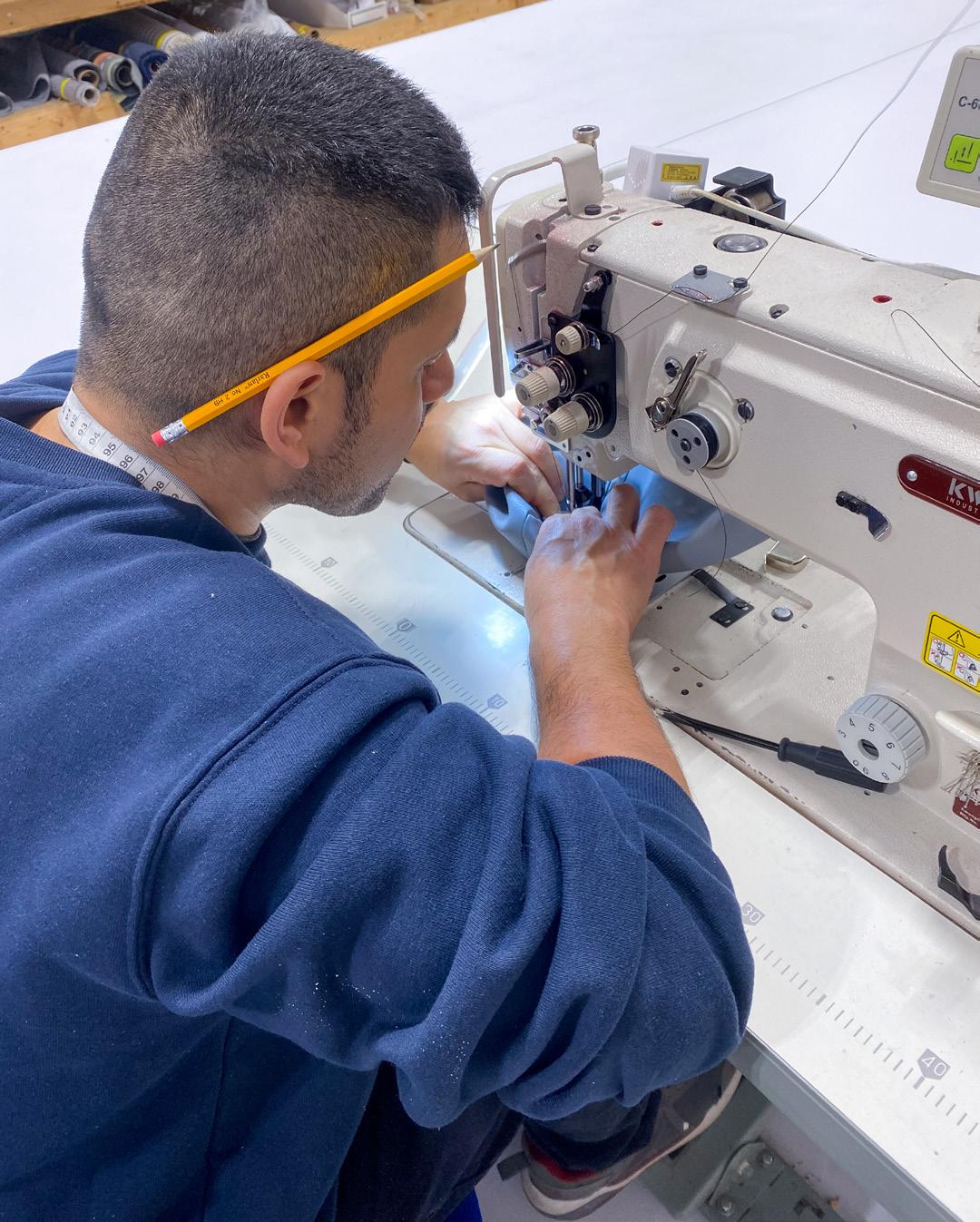
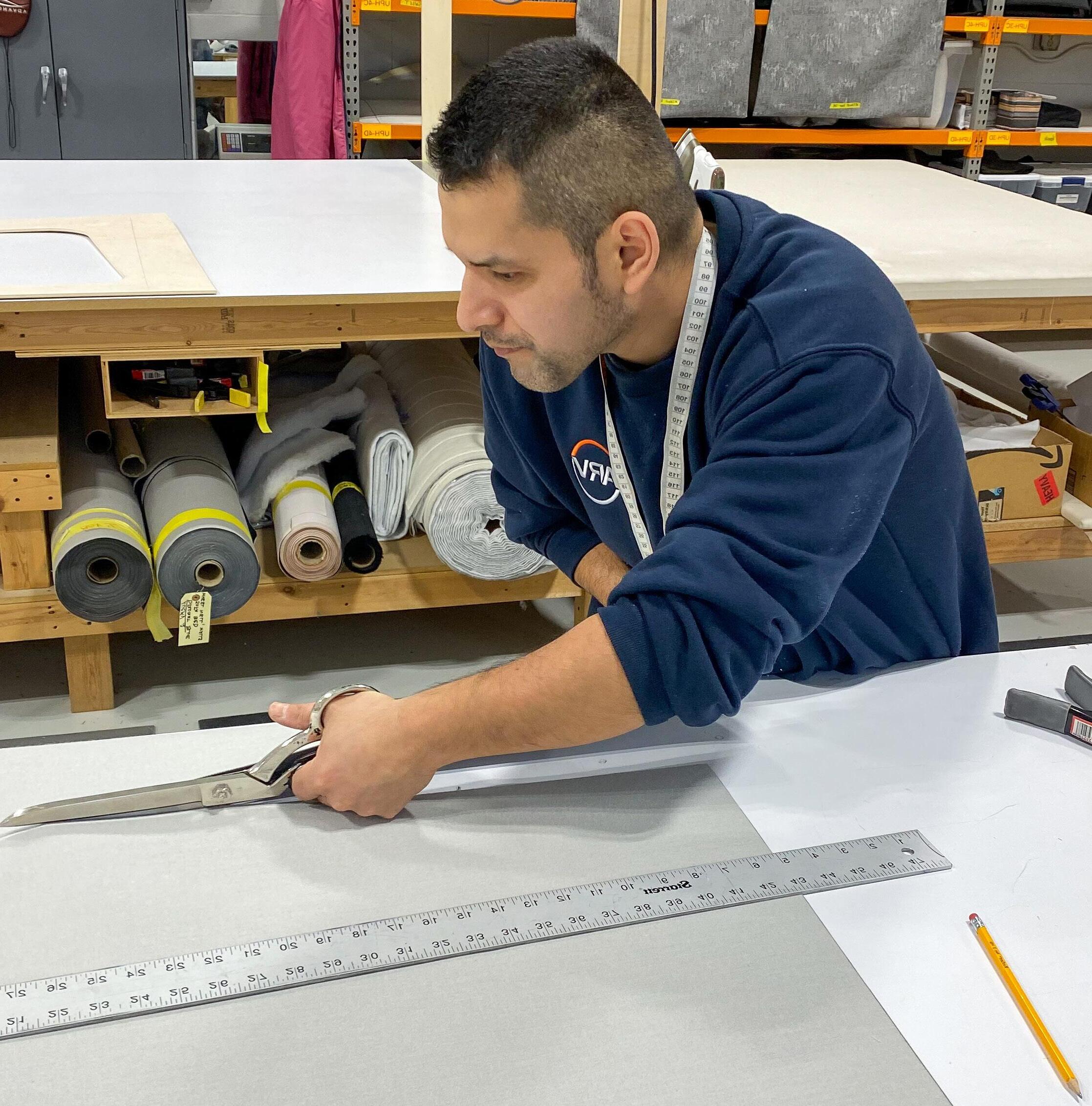
Itis night. Light from a bright, full moon reflects off the beach and the lulling, lapping sea as it climbs and recedes. From out of the dark water, a female sea turtle emerges. With unhurried movements, she drags herself up the beach with her wide, flat flippers. She is looking for the perfect spot.
She searches, feeling out the sand, and finds an area of the beach that suits her. With all four flippers, she moves the dry dirt and sand out of the way. Then, with her rear two, she digs as deep as she can, burying into the wet sand, moving it aside, until she has created a chamber.
Eggs fall in quick succession: one, two, three, until nearly one hundred and fifteen fill the waiting chamber. Her clutch complete, she buries the eggs with the wet sand, patting it gently with her shell, and finishes the process with the dry sand, camouflaging the nest and her hatchlings sleeping inside.
The moon has traveled across the sky, hidden by the trees that line the beach. Starlight is all that reflects on the water now as she trudges to its still-warm arms. Without a glance back, she dips her head under, and disappears forever into the waves.

After a two month incubation period, the first few hatchlings, each using a temporary tooth, break the shells. The movement disturbs the others, and soon, most hatchlings are free. Climbing on top of their discarded shells, and each other, they spend the next five days digging out of the heavy sand.
Like bubbles in a heating pot, the hatchlings boil to the surface, tiny flippers moving unceasingly like flower petals in a strong wind. The fresh night air touches them for the first time as they scramble over each other, the waves of the ocean beckoning to them. In answer, their exhausted bodies become frantic, scooting feverishly down the too-long beach.

They are fortunate it is dark; no seagulls or birds await their arrival. They continue undisturbed until the water sweeps them away.
But what of their brothers and sisters who were not strong or lucky enough to break free from the sand?

